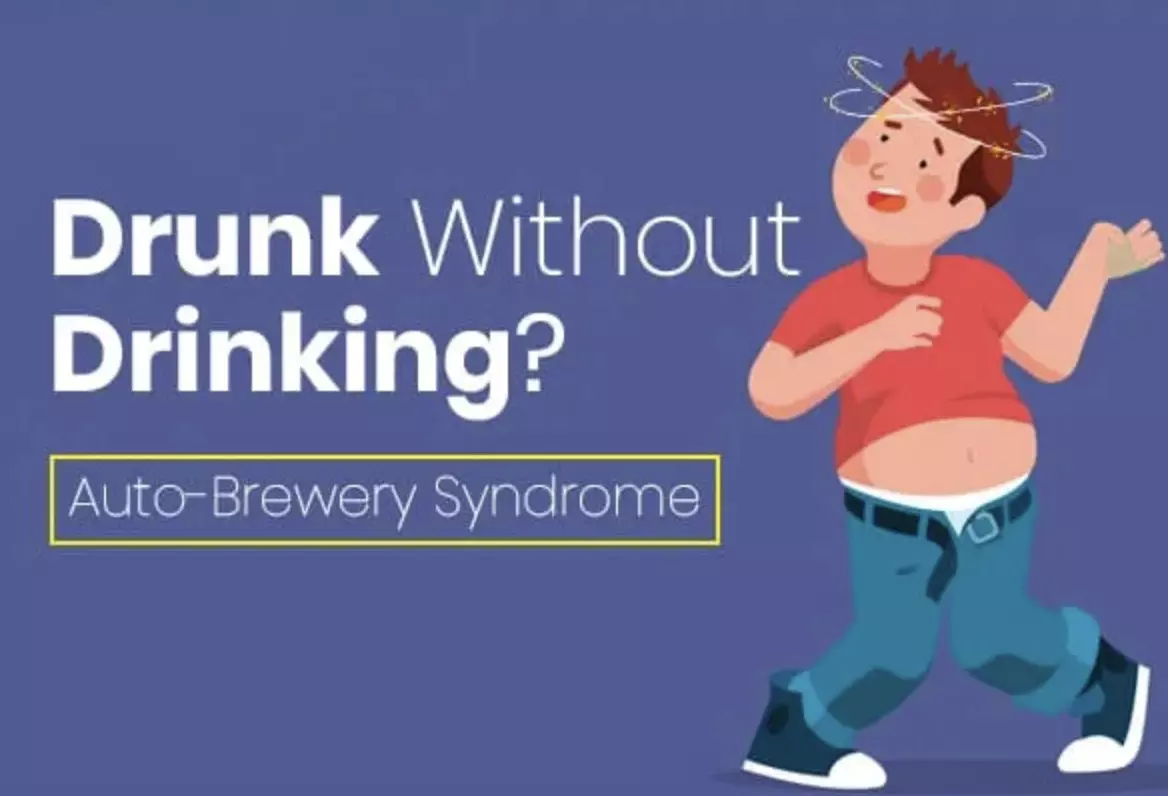What is auto-brewery syndrome? Belgian man discovers his body brews alcohol
Belgian authorities were perplexed when a brewery worker, previously unaware of his condition, repeatedly registered blood alcohol levels far exceeding the legal limit
image for illustrative purpose

Belgian authorities were perplexed when a brewery worker, previously unaware of his condition, repeatedly registered blood alcohol levels far exceeding the legal limit, leading to multiple encounters with law enforcement. The 40-year-old man, who has chosen to remain anonymous under the advice of his legal counsel, found himself entangled in a legal quagmire after routine traffic stops revealed blood-alcohol readings surpassing four times the legal limit.
After several run-ins with the law, a shocking revelation came to light: the man suffered from auto-brewery syndrome, a condition that effectively transformed his body into a clandestine brewery.
However, this man is not the only one suffering from this unique disorder.
From Oregon, US, where a truck accident unleashed thousands of salmon onto a highway due to a driver's undiagnosed ABS, to New York, where a routine traffic stop revealed lethal blood alcohol levels in the absence of conventional intoxication, the syndrome has brought legal repercussions for quite a few individuals.
Anse Ghesquiere, the man's legal representative in Belgium, stated that her client was entirely unaware of his condition. “I think he was somehow relieved that he finally knew what was up,” she told The New York Times.
The man was first fined by police in 2019 and pulled over again in April 2022 after a breath analyzer returned a reading of 0.91mg of alcohol per liter, way past the legal limit of 0.22 mg per liter, reported AFP.
Three separate medical examinations corroborated the diagnosis, providing a modicum of solace amid the turmoil. Embracing a regimen of dietary adjustments and medical interventions, the man is now trying to navigate the complexities of ABS and prevent future flare-ups. He has been cleared of the charges as well.
What is Auto-Brewery Syndrome?
Auto-Brewery Syndrome occurs when certain fungi or bacteria in the gut produce excessive amounts of ethanol, converting carbohydrates from food into alcohol. This condition, also referred to as gut fermentation syndrome, turns the body into an unexpected brewery, where ingested carbohydrates ferment into alcohol, leading to intoxication without a drop of alcohol.
Individuals with ABS may experience symptoms ranging from mild to severe intoxication, including dizziness, disorientation, fatigue, and even blackouts.
Initially, these symptoms might be mistaken for alcohol intoxication. Diagnosis often involves a thorough medical history, blood alcohol level tests, and specialized breath tests to confirm the presence of elevated ethanol levels.
Causes of ABS
The precise cause of Auto-Brewery Syndrome remains elusive, although it's often associated with an imbalance in gut microbiota, allowing ethanol-producing organisms to proliferate unchecked. Factors such as antibiotic use, dietary habits, and underlying medical conditions like diabetes or obesity may contribute to the development or exacerbation of ABS.
Certain carbohydrate-rich foods, particularly those high in sugars or starches, can act as triggers for ethanol production in individuals with this condition.
Treatment and Management
Managing Auto-Brewery Syndrome involves a multifaceted approach aimed at restoring gut health and minimizing ethanol production. Dietary modifications, such as reducing carb intake and avoiding trigger foods, can help alleviate symptoms.
Probiotics and antifungal medications may be prescribed to rebalance gut flora and suppress ethanol-producing organisms. Additionally, lifestyle changes, including regular exercise and stress reduction techniques, may aid in symptom management.
While only a fraction of individuals worldwide receives a formal diagnosis, evidence suggests that auto-brewery syndrome might be more prevalent than previously assumed. Cases have been recorded only in the last 100 years.
The rarity of the condition coupled with its diverse symptomatology often leads to misdiagnosis or delayed recognition. Moreover, the stigma associated with symptoms resembling alcohol intoxication can exacerbate social and psychological distress for those affected.

